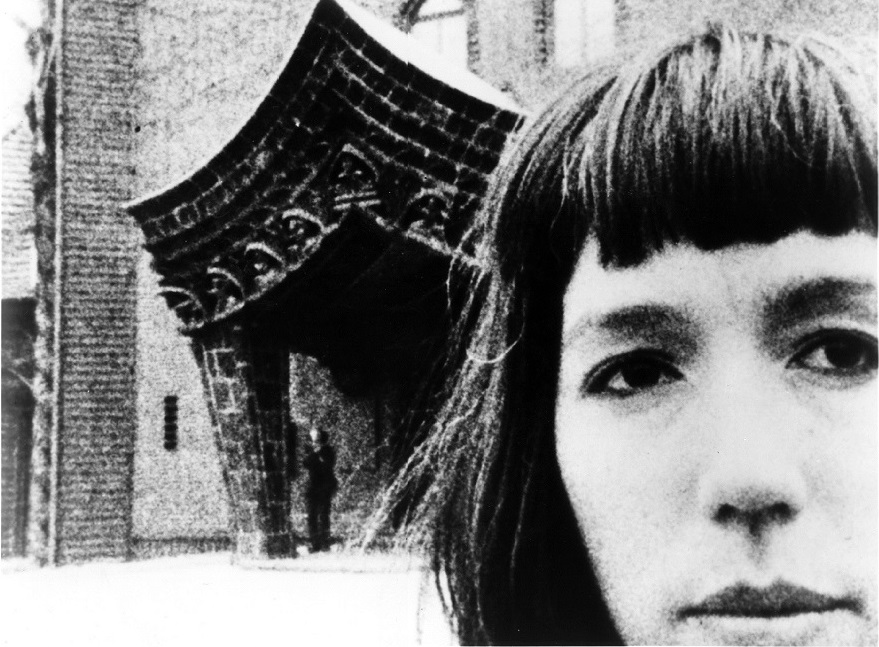
December 9th, 2014
@ Alamo Drafthouse at the Ritz (map)
7pm
$10 (Buy Tickets)
Experimental Response Cinema presents this now-classic film by legendary dancer, choreographer, and filmmaker Yvonne Rainer. Centering around a series of psychoanalysis sessions (with film scholar Annette Michelson as “the patient”), Rainer’s film investigates topics of terrorism, radicalism, and rehabilitation. Programmed by Ekrem Serdar.
Journeys from Berlin/1971 by Yvonne Rainer
125 min / 16mm / sound / 1980
In Journeys from Berlin/1971 there are five characters: a man, woman, and adolescent girl who “appear” only on the sound track; a female psychoanalytic patient in her early 50s; and a therapist, or analyst, played alternately by a man, woman, and nine-year-old boy. The speech of the analytic session is synchronous with the image. The voice-over of the other three people bears a constantly shifting relationship to a recurrent gamut of images: views from a moving train window and from various apartment windows in Berlin, London, and New York; tracking shots scanning a mantlepiece cluttered with objects; aerial views of Stonehenge and the Berlin Wall; and a sequence of highly formalized editing that deals with a man and woman walking in an outdoor urban space.
The patient reminisces, falls asleep, harangues the analyst, complains, and finally gets around to examining her own suicide attempt in Berlin in 1971. The man and woman of the soundtrack prepare dinner and read to each other from the writings of various revolutionaries. The inevitable comparisons are made – and rejected – between 19th-century Russian and contemporary German acts of political violence. Interwoven with these voices is the adolescent girl reading from a (her?) diary, kept during the 1950s.
The subject matter of the film is pursued and elaborated in parallel – sometimes contingent, sometimes contrasting – investigations of political violence/suicide; self-determination/the power of the State; psychological introspection/political engagement; self knowledge/altruism; and American/European relations to these matters. The film utilizes formal strategies that gained prominence in 1960’s art and dancemaking, namely the inherent expressiveness of quotidian gesture and imagery, and the relativity of meaning resulting from “radical,” random, or ambiguous juxtapositions.
Bio
Yvonne Rainer was born in San Francisco in 1934. She trained as a modern dancer in New York from 1957 and began to choreograph her own work in 1960. She was one of the founders of the Judson Dance Theater in 1962, beginning the movement that proved to be a vital force in modern dance in the following decades. Between 1962 and 1975 she presented her choreography throughout the United States and Europe, notably on Broadway in 1969, in Scandinavia, London, Germany, and Italy between 1964 and 1972, and at the Festival D’Automne in Paris in 1972. In 1968 she began to integrate short films into her live performances and by 1975 she had made a complete transition to filmmaking.Rainer has received numerous awards and fellowships, among them two Guggenheims, two Rockefellers, seven awards from the National Endowment for the Arts, six awards from New York State Council on the Arts, a Maya Deren Award (1988), a DAAD Fellowship(1976-77), a MacArthur Prize (1990-95), an American Film Institute grant, and a Wexner Prize (1995). She is the recipient of three Honorary Doctor of Fine Arts Degrees: in 1989 from the Rhode Island School of Design and the Massachusetts College of Art, and in 1993 from the California Institute of the Arts.